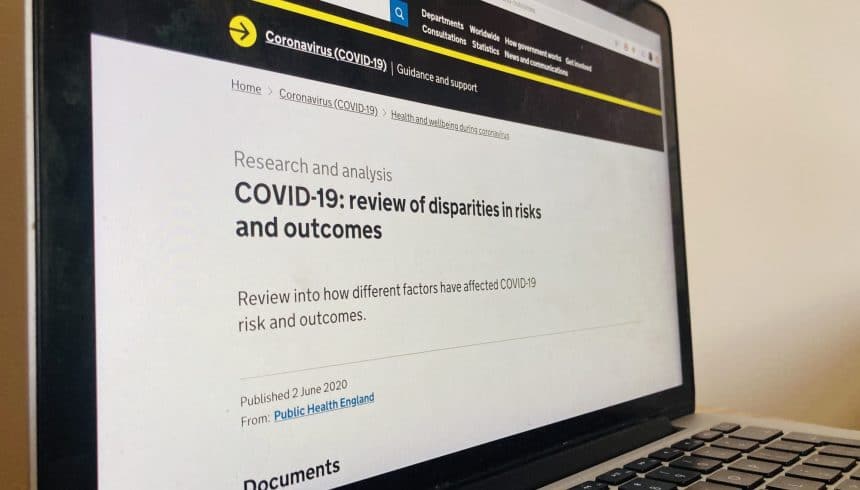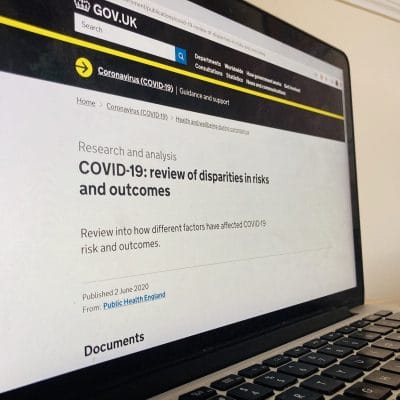Public Heath England (PHE) today released their much-trailed review into the impact COVID-19 has on different communities. Whilst the report offers some important analysis into the effects of COVID-19 on different communities and risk factors, what is more telling is that which is missing. A lack of regularly collected data is remarkably revealing: we have for decades excluded people by not collecting data relevant for analysis.
Sarah Teather, Director of JRS UK said, “The findings of this report highlight the need for strong measures to protect and support refused asylum seekers and other vulnerable migrants in the context of the pandemic.
“Presented with evidence that BAME communities are at increased risk from COVID-19 and that being obliged to sleep rough increases risk of infection, the government must act to find solutions that will enable a safe place for everyone for the duration of the pandemic and beyond.”
The report suggests that both migrant and homeless communities are at greater risk from COVID-19, but that data to explain why this is, is unavailable. The report states: “Information on vulnerable groups is lacking. Very few surveillance systems accurately capture groups of the population who are known to have the poorest health outcomes such as vulnerable migrants, sex workers or people experiencing homelessness or rough sleeping. These analyses therefore do not allow us to accurately assess the impact of COVID-19 on the most vulnerable groups of the population.”
Connectedly, the report noted that vulnerable migrants and other excluded groups “tend to have the poorest health outcomes” due to “overlapping risk factors, such as facing barriers in access to services, stigma and discrimination” but are often “effectively invisible for policy and service planning purposes.” The report does not itself analyse the impact of these barriers and discrimination, or their interaction with the social and political context of the pandemic.
The report compared death rates in the UK in the period 21 March to 8 May 2020 with death rates in the same period in previous years and found that: “The biggest relative increase [in death rates], was for people born in Central and Western Africa” but does not explain why this is.
Considering homelessness, the report notes that “There were 54 men and 13 women diagnosed with COVID-19 with no fixed abode, likely to be rough sleepers. We estimate that this represents 2% and 1.5% of the known population of women and men who experienced rough sleeping in 2019. Data is of poor quality, but this suggests a much higher diagnoses rate when compared to the general population.”



